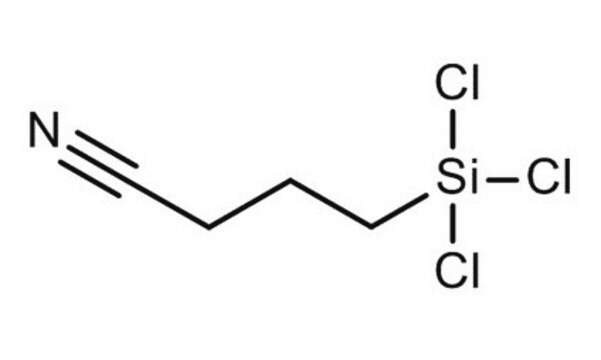674249
11-Mercapto-1-undecanol
99%
Synonym(s):
11-Hydroxy-1-undecanethiol, 11-Hydroxy-1-undecanthiol, 11-Hydroxyundecane-1-thiol, 11-Mercaptoundecanol, MUD
About This Item
Recommended Products
Assay
99%
form
solid
mp
33-37 °C (lit.)
storage temp.
2-8°C
SMILES string
OCCCCCCCCCCCS
InChI
1S/C11H24OS/c12-10-8-6-4-2-1-3-5-7-9-11-13/h12-13H,1-11H2
InChI key
ULGGZAVAARQJCS-UHFFFAOYSA-N
Looking for similar products? Visit Product Comparison Guide
Application
Signal Word
Warning
Hazard Statements
Precautionary Statements
Hazard Classifications
Eye Irrit. 2 - Skin Irrit. 2 - STOT SE 3
Target Organs
Respiratory system
Storage Class Code
11 - Combustible Solids
WGK
WGK 3
Flash Point(F)
>235.4 °F - closed cup
Flash Point(C)
> 113 °C - closed cup
Personal Protective Equipment
Choose from one of the most recent versions:
Certificates of Analysis (COA)
Don't see the Right Version?
If you require a particular version, you can look up a specific certificate by the Lot or Batch number.
Already Own This Product?
Find documentation for the products that you have recently purchased in the Document Library.
Customers Also Viewed
Articles
Inorganic nanomaterials are tunable by size, shape, structure, and/or composition. Advances in the synthesis of well-defined nanomaterials have enabled control over their unique optical, electronic, and chemical properties stimulating tremendous interest across a wide range of disciplines. This article illuminates some of the recent research advances of inorganic nanoparticles (NPs) in optoelectronics applications.
Our team of scientists has experience in all areas of research including Life Science, Material Science, Chemical Synthesis, Chromatography, Analytical and many others.
Contact Technical Service










